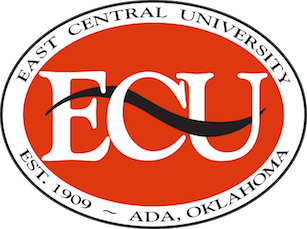This page guides you to figure out which careers you can pursue in counseling with a Bachelor of Counseling degree.
If you are the type of person that is motivated towards helping others, the field of counseling may be the right place for you to pursue a career. Beginning at the bachelor’s level, you can gain expertise that you can utilize while working with clients in the field.
The Bachelor’s in Counseling is the foundational degree program for new professionals in this field. Most upcoming students choose the Bachelor’s in Counseling because it provides undergraduate introductory courses that are directly related to what is expected in careers available after graduation.
At this level, you can learn the basics of human psychology, as well as gain more insight into the developmental process from birth until old age. Some degree programs currently seeking students may also include components that teach the basics of abnormal psychology and common treatment approaches to help you familiarize yourself with common mental health disorders and diagnoses.
 Walden University : BS in Psychology (HLC Accredited)
Walden University : BS in Psychology (HLC Accredited) Southern New Hampshire University (SNHU) : Online Psychology Degrees (Bachelors and Masters. Flexible. Affordable. And achievable.)
Southern New Hampshire University (SNHU) : Online Psychology Degrees (Bachelors and Masters. Flexible. Affordable. And achievable.) East Central University : Online BA in Human Services Counseling (2 concentrations available)
East Central University : Online BA in Human Services Counseling (2 concentrations available) University of West Alabama : Online Bachelor of Psychology (Online Bachelor’s Degree Program)
University of West Alabama : Online Bachelor of Psychology (Online Bachelor’s Degree Program)A Bachelor of Counseling degree program can be an excellent choice for students that are prepared to enter the field at the bachelor’s level and for students that are considering transition into master’s level programs after their initial degree completion. If you are looking for a degree program that can provide you with the most helpful foundation for counseling careers, the Bachelor’s in Counseling could be your best choice.
Most people set their sights on career options prior to organizing the details of their intended educational path. If you have identified counseling as a career field you are interested in pursuing, the Bachelor’s in Counseling could be a great first step in getting you to the job you desire.
Counseling may be one of the most popular career fields for individuals with the desire to improve the lives of other people. This field focuses on exploring individual strengths and attributes, so that individualized treatment plans can be created for optimum life quality improvement.
Consider a Featured Online Counseling Program
| School and Program Information | Online Program? Entry Requirements | Course Information | |
|---|---|---|---|
|
Walden University
BS in Psychology
HLC Accredited
|
✔ Online
|
Prepare to transform lives with a BS in Psychology from Walden University. Our program introduces you to a wide range of theories, approaches, and perspectives within the field while providing you with insight into issues affecting diverse individuals and social groups.
|
Learn More |
|
Southern New Hampshire University (SNHU)
Online Psychology Degrees
Bachelors and Masters NECHE Accredited
|
✔ Online
No application fee or GRE/GMAT scores required
|
With our unique programs - from child and adolescent development to forensic psychology - you'll be prepared for a wide variety of careers.
|
Learn More |
|
East Central University
Online BA in Human Services Counseling
Accredited
|
✔ Online
|
Concentrations in Counseling and Rehabilitation. CACREP-accredited.
|
Learn More |
|
University of West Alabama
Online Bachelor of Psychology
|
✔ Online
|
Bachelor of Psychology is an online undergraduate program with a flexible online environment.
|
Learn More |
*Sponsored Counseling Programs
For detailed degree information, view the guides to:
Online CACREP Accredited programs | Online MPCAC Accredited programs
Steps to Getting a Bachelor’s in Counseling
If the Bachelor’s in Counseling is a degree program that interests you as an upcoming mental health professional, you should ensure that you find the right program for the career you are seeking. Variations of this degree program can be found at traditional and online universities, with some even providing pre-counseling designations for students moving to Master’s in Counseling programs after graduation.
1. Find a Bachelor of Counseling Program
Seeking out Bachelor’s of Counseling programs should involve a search of nearby universities, verification of regional accreditation, and determining whether or not your bachelor’s program is acceptable for later applications to master’s degree programs. Many current bachelor’s programs accept students right after high school graduation or adults working full-time that are seeking higher education to better their careers.
Depending on where you are in terms of education, the process to enrolling in a bachelor’s program may be different than others. Recent high school graduates may find it beneficial to seek out available Bachelor’s in Counseling programs through local and regionally accredited universities.
2. Consider an Online Bachelor of Counseling Degree
If you are an adult considering a move into higher education, flexible and reliable online Bachelor’s in Counseling degree programs may be the best option for you. There are numerous degree options open and available for applicants with varying needs and expectations for higher education.
3. Apply and Provide Admissions Requirements
Once you have located an available degree program, you should be prepared to include historical educational information with your initial application. In most cases, colleges want to see your high school transcripts as well as transcripts from any college courses that you have taken prior to your enrollment.
Your university will review your application and make a determination based off of your prior performance, high school GPA, and any other achievements that you may have received along the way. Most colleges will send you an official acceptance letter or email and information about registering for your first classes.
Depending on the popularity of the university and the demand of the program, the acceptance guidelines may be different for each program. For best results, you are encouraged to apply to more than one program in an effort to maximize your possibilities for acceptance.
 Walden University - BS in Psychology (HLC Accredited)
Walden University - BS in Psychology (HLC Accredited)
 Southern New Hampshire University (SNHU) - Online Psychology Degrees (NECHE Accredited)
Southern New Hampshire University (SNHU) - Online Psychology Degrees (NECHE Accredited)
 East Central University - Online BA in Human Services Counseling (HLC Accredited)
East Central University - Online BA in Human Services Counseling (HLC Accredited)
 University of West Alabama - Online Bachelor of Psychology (SACSCC Accredited)
University of West Alabama - Online Bachelor of Psychology (SACSCC Accredited)
Program Areas You Can Study
The undergraduate level for upcoming counseling professionals can include a look into several different subject areas that can increase expertise in counseling careers. Most student enrolling in bachelor’s level programs choose fields in counseling or psychology for their program, since these fields can best prepare them for working in the field.
Counseling
Both the Master’s in Counseling and the Master’s in Psychology can provide you with useful knowledge and data for use in this career area. The Master’s in Counseling program may be an ideal choice for learners that are interested in pursuing entry-level positions as mental health technicians, youth counselors, or drug abuse counselors after graduation.
After your acceptance into these programs, you can begin to choose from a wide range of courses and subject areas for your curriculum. Each of these areas provide you with insight into human development, community relationships, and ethical practice within these areas.
Psychology
The subject of psychology is one of the most important components in the field of counseling, since it can introduce students to concepts related to cognition, memory, emotion, and learning. Delves into this subject can assist students with gaining more knowledge about how the brain develops and the many different factors that can encourage or hinder healthy development.
Sociology
Another topic that can increase your awareness in counseling careers is that of sociology. Counselors often work with clients that are managing relationships in their community, with their culture, or with their relationships, making sociology a great subject area to learn about diversity, cultural awareness, and interpersonal relationships.
Law and Ethics
Courses related to ethical treatment of people, privacy laws, and expectation for professional practice may also be included in your Bachelor’s in Counseling degree program. Introductions to the field of social science may be expected, since the work done in the field of counseling is related to the treatment of individuals in need.
Your bachelor’s program can also include general education components that are included within all socially-oriented bachelor’s programs. Courses in English, Mathematics, and Humanities may be a portion of your overall degree requirements and can help you generalize your skills within different sectors of society.
HR Management
Human Resource Management (HRM) is a multifaceted and dynamic field that stands at the intersection of business management and employee well-being. It encompasses various aspects of managing a workforce in an organizational setting. HRM is essential for fostering a productive, engaging, and harmonious workplace environment.
Learn More: How to Become a HR Manager
Top 10 Careers with a Bachelor’s in Counseling
Vocational Rehabilitation Specialist
Counseling degree programs can prepare you for guiding people with varying needs on their journeys throughout their lifetimes. Vocational Rehabilitation Specialists can help people assess their abilities and skills to find meaningful careers to match their personality and skill level. In this position, you can work for career centers and employment services within your area – providing a valuable service to members of your community.
Drug Abuse Counselor
As a drug abuse counselor, you can work with clients that are struggling with drug addiction in both inpatient and outpatient settings. The minimum degree requirement for entry into this field is a Bachelor’s degree in Counseling, Social Work, or Psychology.
Social Worker
Bachelor’s level social work professionals can be employed by social services, the court system, or even within private organizations focused on addictions, wellness, or public health. In this position, you can assist individuals with assessing their needs and gaining access to services to improve their lives.
Children’s Services Case Manager
If you are interested in helping children obtain permanency after experiencing variable traumas, you can seek out careers through your state’s Children’s Services office. This position requires a minimum of a bachelor’s degree in a social work or counseling field.
Youth Counselor
Youth counselors can work for social service agencies, in residential youth homes, or in youth clubs all over the country. A Bachelor’s in Counseling can prepare you to connect with children in an effort to help them explore their potential for optimum personal growth.
Rehabilitation Counselor: As a bachelor’s degree holder, you can seek out positions responsible for helping people in rehabilitation facilities within your area. This career can help you guide people with varying physical and emotional illnesses back to prime functioning and promote positive wellness along the way.
In-home Behavioral Counselor
Having a Bachelors in Counseling can help you qualify for positions in in-home behavioral health. These professionals work under the direct supervision of master’s level counselors and provide behavior planning and support to families in need – all in the home setting.
Direct Care Professional
Direct Care Professionals can work in a variety of settings, providing support to individuals in need. In some cases, professionals in this line of work may assist individuals that reside in assisted-living communities or even provide guidance to members of drug and alcohol recovery programs. Holding undergraduate degrees in Counseling can be beneficial for people that regularly support people with varying needs during their day to day lives.
Behavioral Specialist
If you have achieved a Bachelor’s in Counseling, you can work for organizations that utilize the expertise of behavior specialists. These professionals may work with individuals or families that are struggling with behavior management, assess the environments and locations that are most likely to support certain behaviors, and establish plans for their clients to follow for learning appropriate behaviors and behavior management.
Mental Health Technician
Under the supervision of licensed counselors and psychologists, mental health technicians can provide hands-on support to patients within mental health facility settings. Implementing treatment steps, organizing services, and consulting with family members are just a few of the many responsibilities that professionals in this field become involved with in this line of work.

